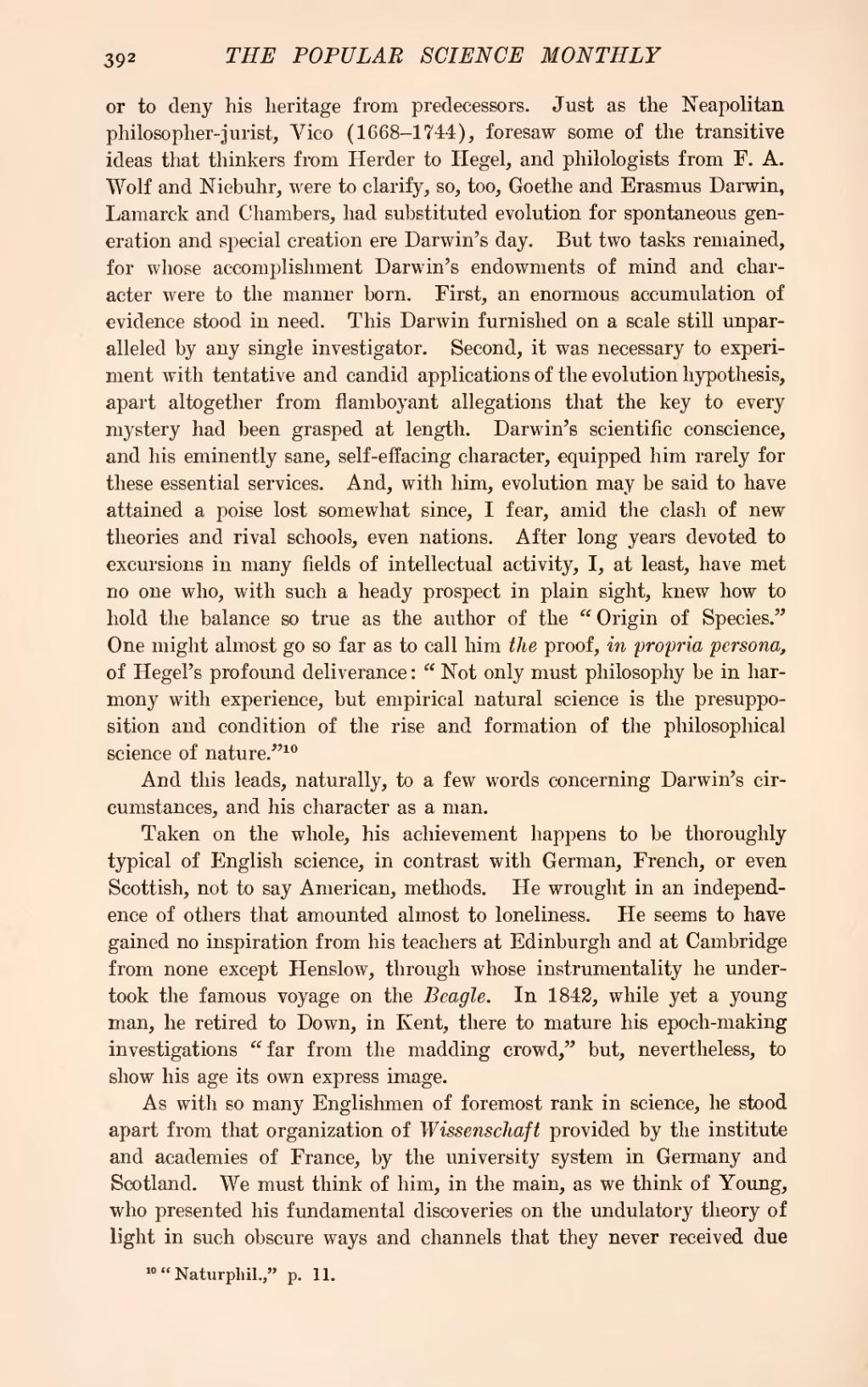or to deny his heritage from predecessors. Just as the Neapolitan philosopher-jurist, Vico (1668-1744), foresaw some of the transitive ideas that thinkers from Herder to Hegel, and philologists from F. A. "Wolf and Niebuhr, were to clarify, so, too, Goethe and Erasmus Darwin, Lamarck and Chambers, had substituted evolution for spontaneous generation and special creation ere Darwin's day. But two tasks remained, for whose accomplishment Darwin's endowments of mind and character were to the manner born. First, an enormous accumulation of evidence stood in need. This Darwin furnished on a scale still unparalleled by any single investigator. Second, it was necessary to experiment with tentative and candid applications of the evolution hypothesis, apart altogether from flamboyant allegations that the key to every mystery had been grasped at length. Darwin's scientific conscience, and his eminently sane, self-effacing character, equipped him rarely for these essential services. And, with him, evolution may be said to have attained a poise lost somewhat since, I fear, amid the clash of new theories and rival schools, even nations. After long years devoted to excursions in many fields of intellectual activity, I, at least, have met no one who, with such a heady prospect in plain sight, knew how to hold the balance so true as the author of the "Origin of Species." One might almost go so far as to call him the proof, in propria persona, of Hegel's profound deliverance: "Not only must philosophy be in harmony with experience, but empirical natural science is the presupposition and condition of the rise and formation of the philosophical science of nature."[1]
And this leads, naturally, to a few words concerning Darwin's circumstances, and his character as a man.
Taken on the whole, his achievement happens to be thoroughly typical of English science, in contrast with German, French, or even Scottish, not to say American, methods. He wrought in an independence of others that amounted almost to loneliness. He seems to have gained no inspiration from his teachers at Edinburgh and at Cambridge from none except Henslow, through whose instrumentality he undertook the famous voyage on the Beagle. In 1842, while yet a young man, he retired to Down, in Kent, there to mature his epoch-making investigations "far from the madding crowd," but, nevertheless, to show his age its own express image.
As with so many Englishmen of foremost rank in science, he stood apart from that organization of Wissenschaft provided by the institute and academies of France, by the university system in Germany and Scotland. We must think of him, in the main, as we think of Young, who presented his fundamental discoveries on the undulatory theory of light in such obscure ways and channels that they never received due
- ↑ "Naturphil.," p. 11.
